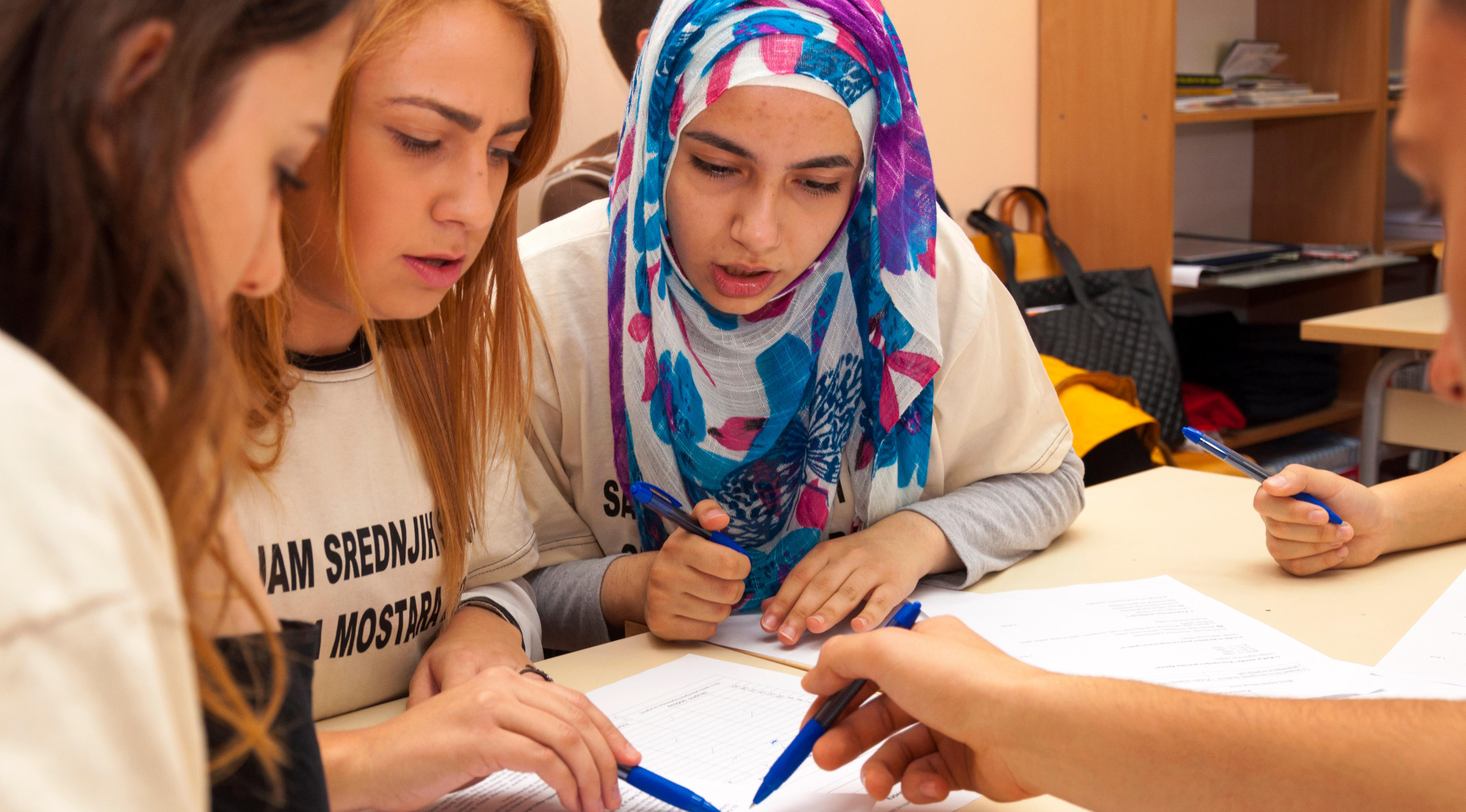What is peace education?
Fundamentally, peace education aims to counter a culture of war by promoting a culture of peace. It challenges the assumption that violence is innate to the human condition and seeks to equip students with the capacity to resolve conflict without violence. Peace education aspires to enable students to become responsible citizens who are open to differences, capable of empathy and solidarity, both within and across borders and social groups, and who can deconstruct the foundations of violence and take action to advance the prospects of peace.
Peace education includes a wide range of approaches. Some focus on promoting individual and interpersonal skills such as emotional awareness, anger management, empathy, cooperation, and kindness. Others focus on the social, cultural, and political aspects of peace, including environmental education, human rights education, development education, cross-cultural studies, and social justice.
Schools as sites of violence
Formal school settings are often sites of violence – including direct, cultural, and structural violence – and there is some doubt that schools provide an enabling environment in which the aims of peace education can take root. However, formal schools help to shape social and cultural values, norms, and attitudes. Education can support children and young people in building positive relationships and creating safe learning environments where children thrive. Moreover, according to published data and studies, peace education interventions have been proven to result in improved attitudes and cooperation and decreased violence and dropout rates. For example, in Afghanistan, Help the Afghan Children’s program saw remarkable reductions in different forms of violence at school and saw improvement in children’s attitudes towards violence against women.
Given the importance of schools in the lives of children and young adults and the need for concerted efforts to work within educational environments to develop cultures of peace, there is a strong case for advancing the understanding and practice of peace education in formal schools and to highlight the crucial role schools can play in furthering the aims of peace.
How can peace education be mainstreamed?
International Alert’s research suggests to effectively advance peace education in schools, where we must promote healthy relationships and a peaceful school culture; address issues of structural and cultural violence; take account of the way education is delivered and packaged, not just the content of the curriculum; combine peace education approaches that are focused on individual transformation and interpersonal relationships with wider socio-political outcomes; connect efforts to advance a culture of peace within schools to wider community initiatives and policy-making.
Mainstreaming peace education is neither linear nor straightforward. Formal schools cannot be radically changed overnight. But we can aim and find the space to create change in existing systems and where we can do complimentary work.


